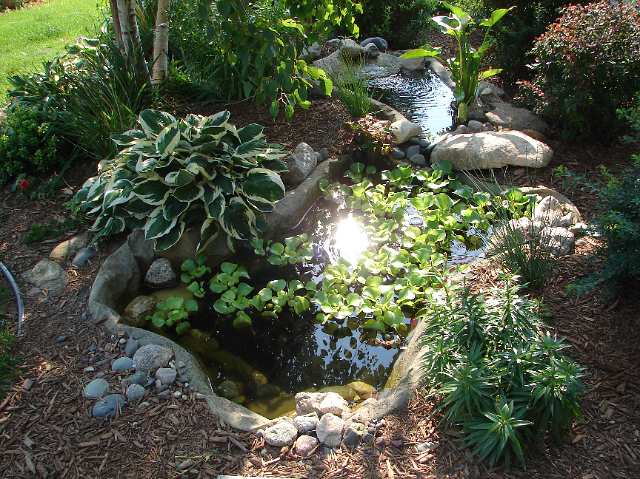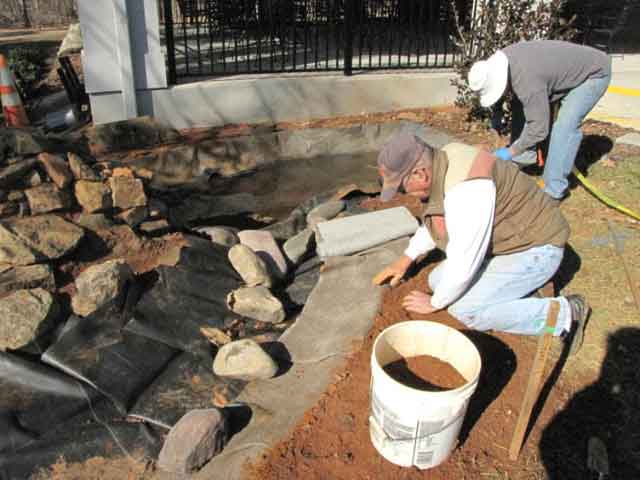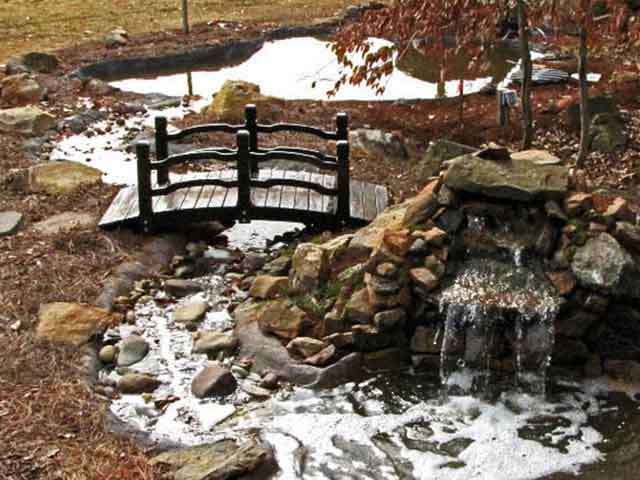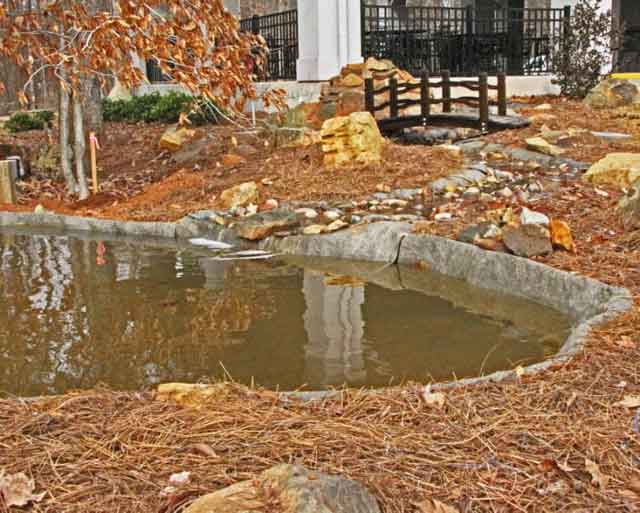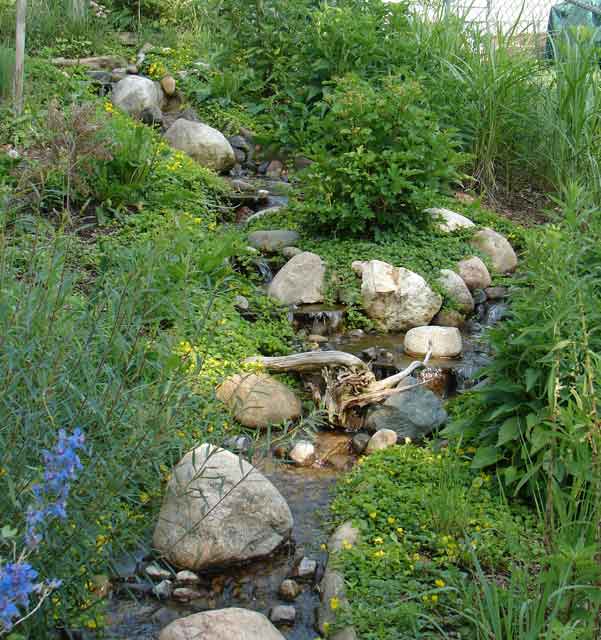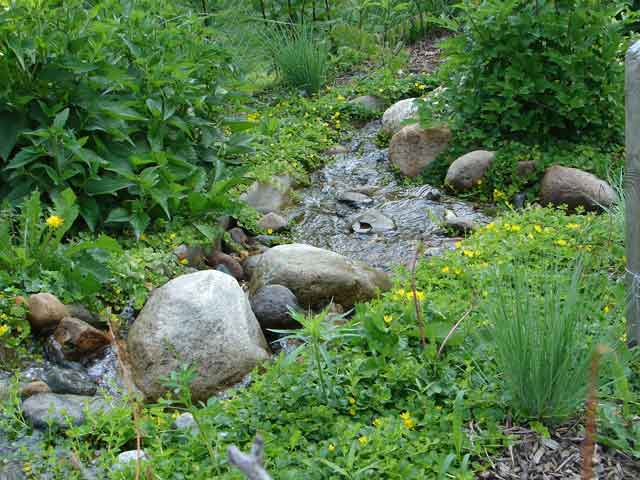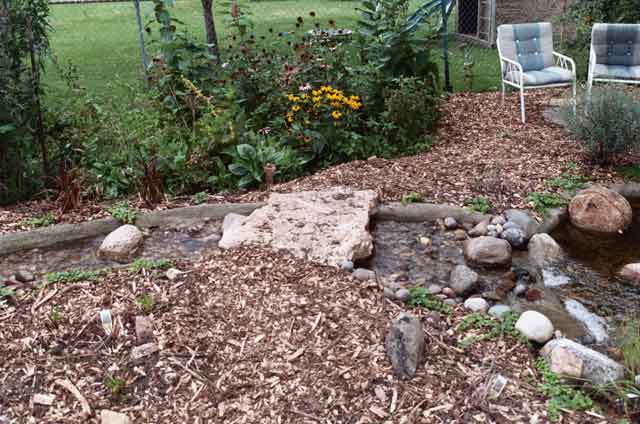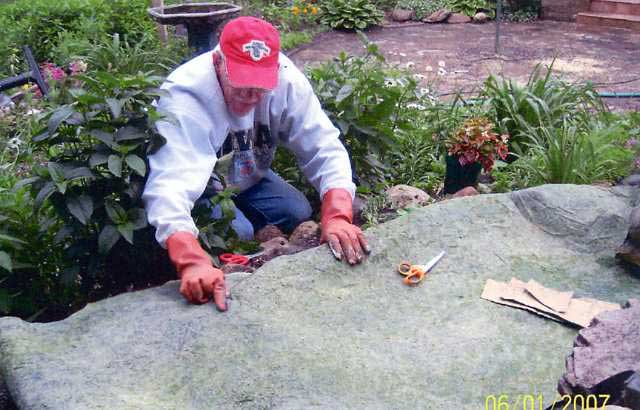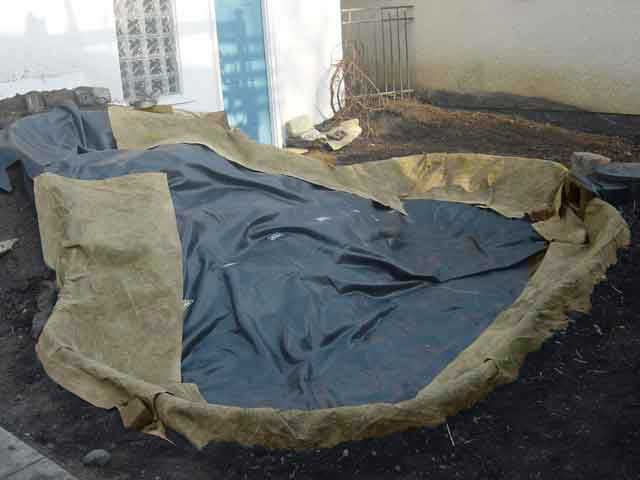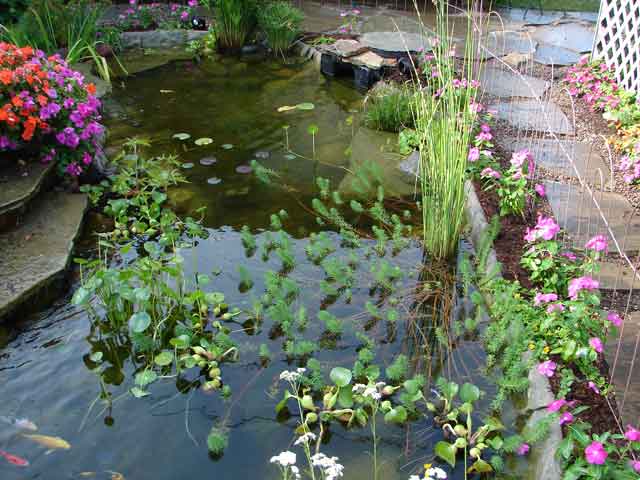A picture is worth a thousand words
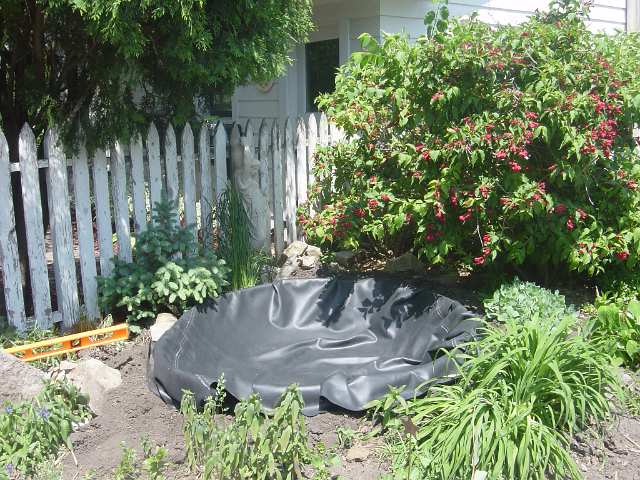
This is an early stage of a small homeowner-built pond. After digging it out, John and Cordelia (the homeowners) lined it with 45 mil EPDM rubber.

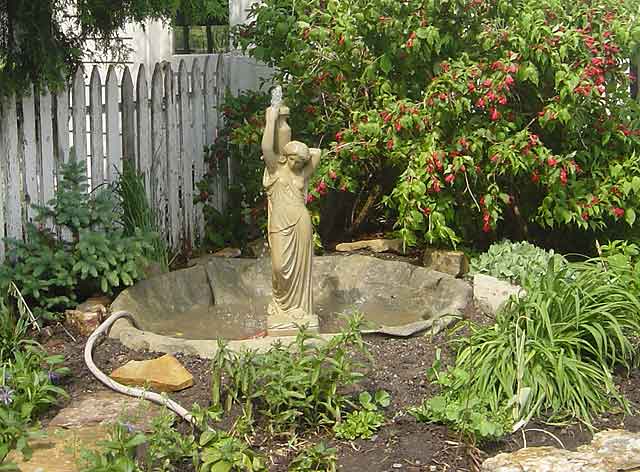
Hiding liner is a big challenge in any pond. Rather than using boulders, which are heavy, unstable and take up pond space, John and Cordelia used Rock-on-a-Roll, which conformed nicely to the shape of the pond.

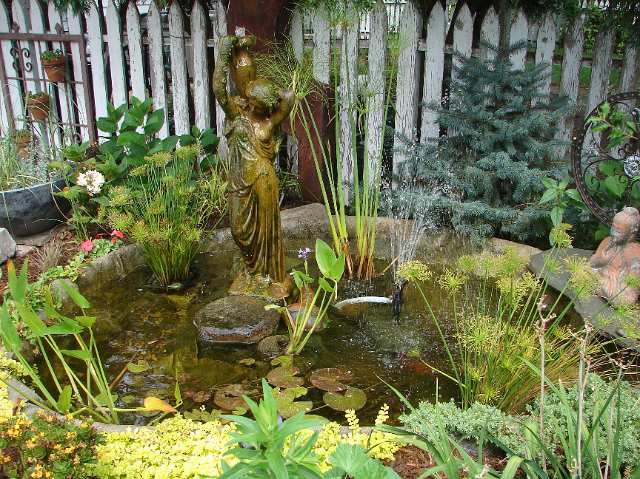
After adding a few plants, and of course water, they had created a simple but very charming small water feature.

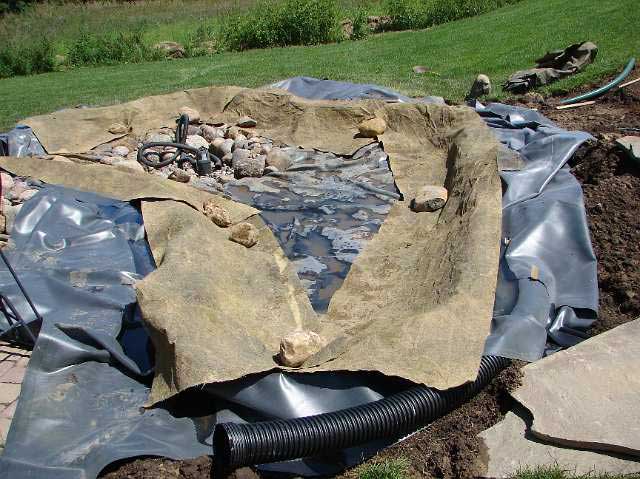
This is a much larger project built by us, Aquatica Water Gardens. Here you see seven rolls of Rock-on-a-Roll that have been laid along the pond edges, covering the rubber. Each roll is 34 inches wide by 8 feet long, and weighs about 6 pounds.

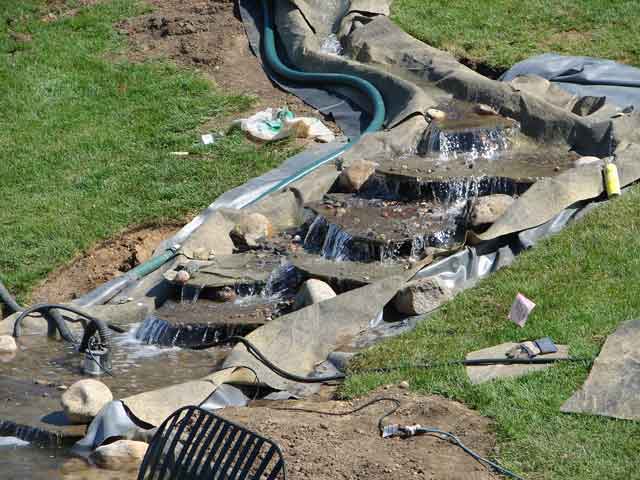
This is the lower part of a stream that flows into the pond. Thin stones are used to create a water cascade, and Rock-on-a-Roll is used along the edges.

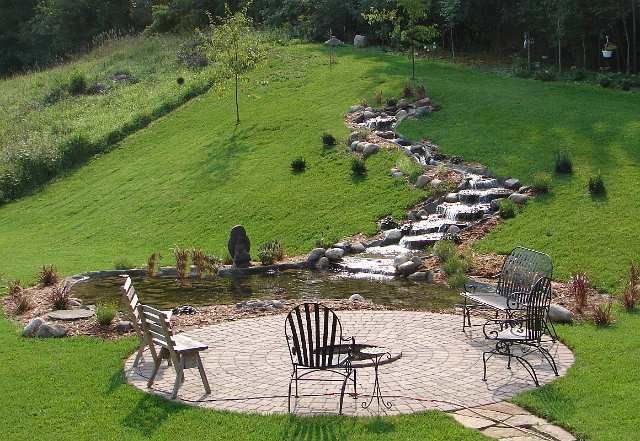
This is the completed project. Because there is no thick ring of boulders, plants will easily be able to grow over the edge, creating a soft and natural look. You can find step-by-step details of this construction project in the raised-edge method section of this website.

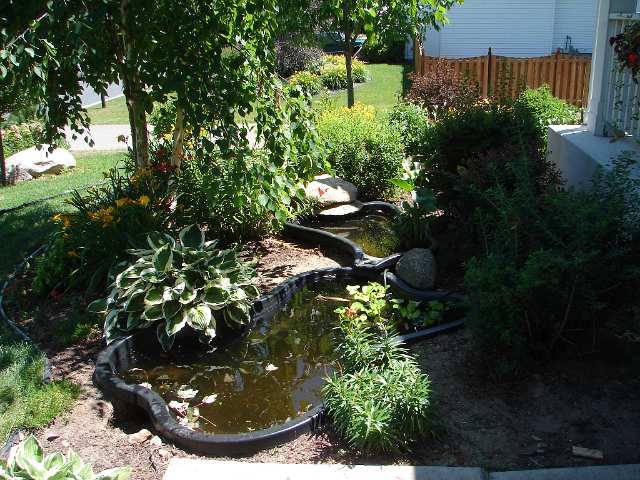
The edges of preformed ponds are just as unattractive and hard to hide as those of rubber lined ponds. They are also usually very small, so you don't want to waste valuable pond space with boulders.

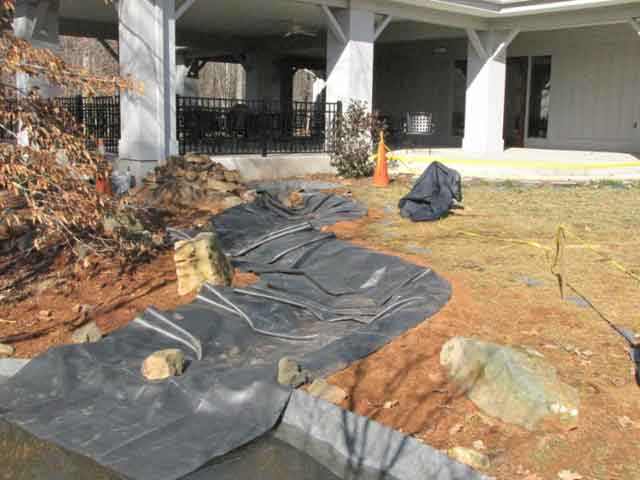
This next set of pictures comes from Bob H. with the Green Garden Group in Burlington, NC.
You can see the beginning stage of a stream that will flow into a lower pond.

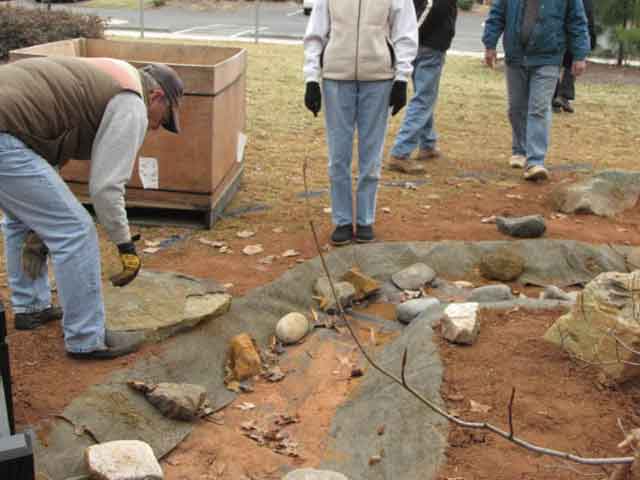
Because the full width of Rock-on-a-Roll was not needed for the sides, the group cut the rolls in half lengthwise and were able to get twice as much length.

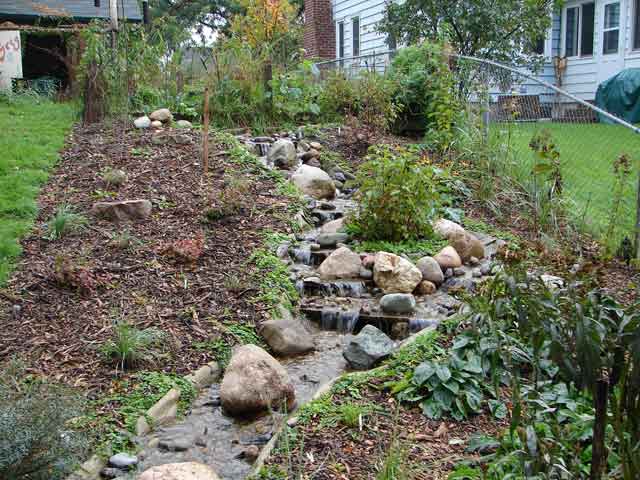
This is a stream build by Bob, a teacher in the winter and do-it-himself pond builder in the summer. Bob loves natural stone, and he wanted to use a lot in his project. However, using Rock-on-a-Roll gave him the freedom to leaves large gaps where plants could grow over the edges, thus avoiding an overly rocky appearance.

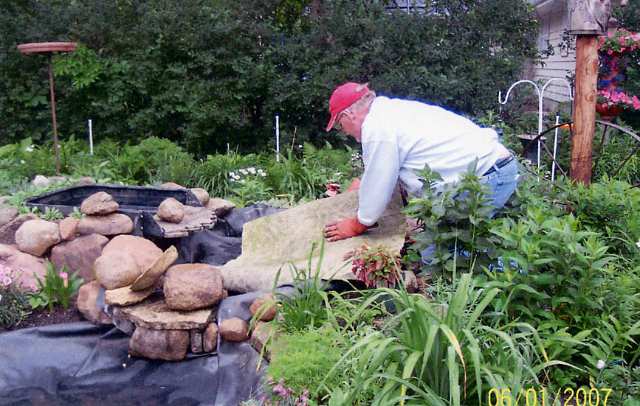
These pictures, generously sent in by another homeowner, show him installing Rock-on-a-Roll in an existing pond.

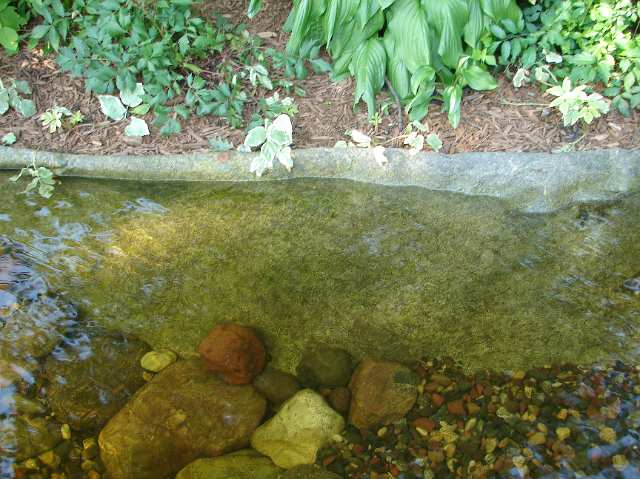
Rock-on-a-Roll is easy to hold in place. Here it is held on the bottom with stones, and on the top with garden soil.

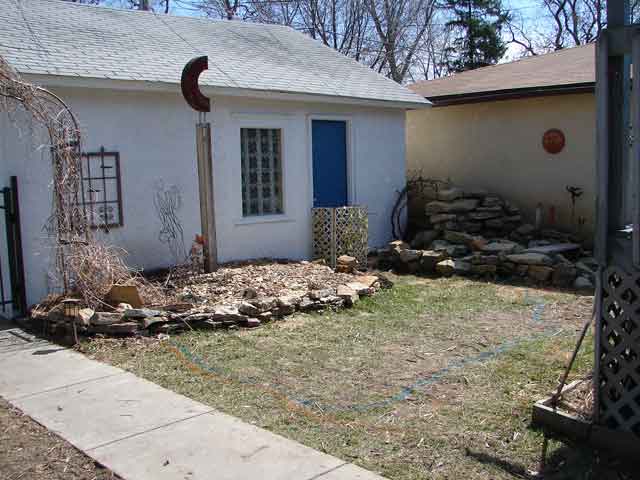
This is the "before" picture for another homeowner built pond (John and Cordelia - yep, same John and Cordelia - they've built three water features on their Minneapolis city lot.)

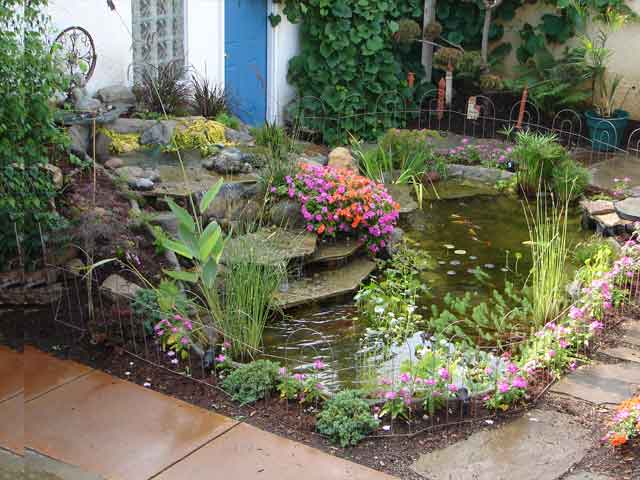
The finished pond and waterfalls. Detailed pictures of this project can be seen in the raised-edge method section of this website.

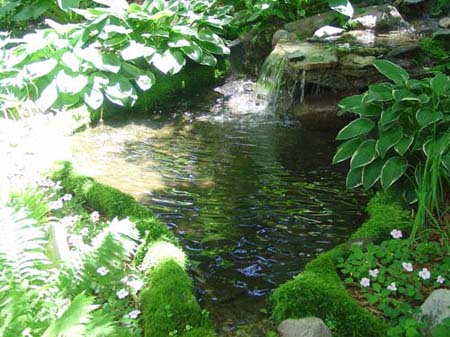
Under moist, shady conditions moss can grow on Rock-on-a-Roll. After a few years, this pond's edge was completely covered with moss.


